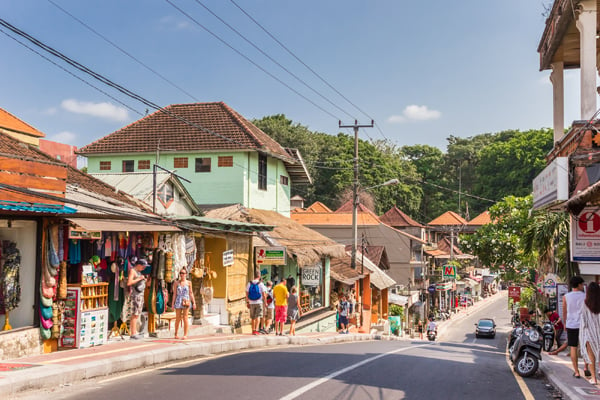
Indonesia’s healthcare system is comprised of both public and private healthcare options. The public healthcare system is known as the Jaminan Kesehatan Nasional (JKN) and is funded by the government. It is available to all Indonesian citizens and foreigners, including expats and digital nomads, are allowed to use the public healthcare system. However, most expats and digital nomads opt for private healthcare due to the quality of care and the availability of English-speaking staff.
Indonesia’s Public Healthcare System
The JKN is the public healthcare system in Indonesia and is funded by the government. It is available to all Indonesian citizens and foreigners, including expats and digital nomads, are allowed to use the public healthcare system. The cost of public healthcare is relatively low, but the quality of care is not as high as private healthcare. Public hospitals are typically overcrowded and understaffed, and many people do not recommend using public hospitals for serious medical emergencies and major surgery.
Indonesia’s Private Healthcare System
Private healthcare in Indonesia is more expensive than public healthcare, but the quality of care is much higher. Private hospitals are typically well-equipped and staffed with English-speaking doctors and nurses. Expats primarily use private hospitals, and many people recommend using private hospitals for serious medical emergencies and major surgery.
Indonesia’s Top Hospitals
The following are some of the most well-known hospitals in Indonesia:
- Siloam Hospitals, Jakarta (private)
- RSUP Sanglah, Denpasar (public)
- RSUP Dr. Sardjito, Yogyakarta (public)
- RSUP Dr. Hasan Sadikin, Bandung (public)
- RSUP Dr. M. Djamil, Padang (public)
- RSUP Dr. Soetomo, Surabaya (public)
- RSUP Dr. Cipto Mangunkusumo, Jakarta (public)
- RSUP Dr. Kariadi, Semarang (public)
- RSUP Dr. Wahidin Sudirohusodo, Makassar (public)
- RSUP Dr. Mohammad Hoesin, Palembang (public)
- RSUP Dr. Sardjito, Yogyakarta (public)
- RSUP Dr. Hasan Sadikin, Bandung (public)
- RSUP Dr. M. Djamil, Padang (public)
- RSUP Dr. Soetomo, Surabaya (public)
- RSUP Dr. Cipto Mangunkusumo, Jakarta (public)
- RSUP Dr. Kariadi, Semarang (public)
- RSUP Dr. Wahidin Sudirohusodo, Makassar (public)
- RSUP Dr. Mohammad Hoesin, Palembang (public)
- RSUP Dr. Soetomo, Surabaya (public)
- RSUP Dr. Cipto Mangunkusumo, Jakarta (public)
- RSUP Dr. Kariadi, Semarang (public)
- RSUP Dr. Wahidin Sudirohusodo, Makassar (public)
- RSUP Dr. Mohammad Hoesin, Palembang (public)
- RSUP Dr. Soetomo, Surabaya (public)
- RSUP Dr. Cipto Mangunkusumo, Jakarta (public)
- RSUP Dr. Kariadi, Semarang (public)
- RSUP Dr. Wahidin Sudirohusodo, Makassar (public)
- RSUP Dr. Mohammad Hoesin, Palembang (public)
- RSUP Dr. Soetomo, Surabaya (public)
- RSUP Dr. Cipto Mangunkusumo, Jakarta (public)
- RSUP Dr. Kariadi, Semarang (public)
- RSUP Dr. Wahidin Sudirohusodo, Makassar (public)
- RSUP Dr. Mohammad Hoesin, Palembang (public)
- RSUP Dr. Soetomo, Surabaya (public)
- RSUP Dr. Cipto Mangunkusumo, Jakarta (public)
- RSUP Dr. Kariadi, Semarang (public)
- RSUP Dr. Wahidin Sudirohusodo, Makassar (public)
- RSUP Dr. Mohammad Hoesin, Palembang (public)
- RSUP Dr. Soetomo, Surabaya (public)
- RSUP Dr. Cipto Mangunkusumo, Jakarta (public)
- RSUP Dr. Kariadi, Semarang (public)
- RSUP Dr. Wahidin Sudirohusodo, Makassar (public)
- RSUP Dr. Mohammad Hoesin, Palembang (public)
- RSUP Dr. Soetomo, Surabaya (public)
- RSUP Dr. Cipto Mangunkusumo, Jakarta (public)
- RSUP Dr. Kariadi, Semarang (public)
- RSUP Dr. Wahidin Sudirohusodo, Makassar (public)
- RSUP Dr. Mohammad Hoesin, Palembang (public)
- RSUP Dr. Soetomo, Surabaya (public)
- RSUP Dr. Cipto Mangunkusumo, Jakarta (public)
- RSUP Dr. Kariadi, Semarang (public)
- RSUP Dr. Wahidin Sudirohusodo, Makassar (public)
- RSUP Dr. Mohammad Hoesin, Palembang (public)
- RSUP Dr. Soetomo, Surabaya (public)
- RSUP Dr. Cipto Mangunkusumo, Jakarta (public)
- RSUP Dr. Kariadi, Semarang (public)
- RSUP Dr. Wahidin Sudirohusodo, Makassar (public)
- RSUP Dr. Mohammad Hoesin, Palembang (public)
- RSUP Dr. Soetomo, Surabaya (public)
- RSUP Dr. Cipto Mangunkusumo, Jakarta (public)
- RSUP Dr. Kariadi, Semarang (public)
- RSUP Dr. Wahidin Sudirohusodo, Makassar (public)
- RSUP Dr. Mohammad Hoesin, Palembang (public)
Health Insurance Companies in Indonesia
The most popular private health insurers in Indonesia are Asuransi Jiwa Manulife Indonesia, Asuransi Sinar Mas, and Asuransi Bina Dana Arta. These companies offer a variety of health insurance plans, including plans for expats and digital nomads. Expats and digital nomads typically use these companies or specialized expat health insurance providers.
Insider Tips from Expats in Indonesia: How to Navigate the Health System
“Indonesia has a wide range of medical services available to its citizens. The country has a network of public hospitals and clinics, as well as private medical facilities. The public health system provides basic medical care, while private facilities offer more specialized services. Indonesia also has a number of medical universities and research centers, which provide advanced medical training and research opportunities. In addition, there are a number of international hospitals and clinics in the country, offering quality medical care to both locals and foreigners,” commented one member living in Indonesia.
“It’s very important to have health insurance and if you’re on an international scheme, then have the documents on the ready to give proof. If you don’t have healthcare insurance, be prepared to pay a pretty penny when sorting health bills,” commented one expat living in Bali, Indonesia.
“Healthcare services in Indonesia are provided by both public and private institutions. The public healthcare system is funded by the government and is available to all citizens. The quality of public healthcare varies depending on the region, but generally it is considered to be of a lower standard than private healthcare. Foreign residents are able to access the public healthcare system, but they may need to pay for some services. Expats in Indonesia often use the public healthcare system for basic medical needs, but they may opt for private healthcare for more specialized treatments,” mentioned one expat living in Indonesia.


